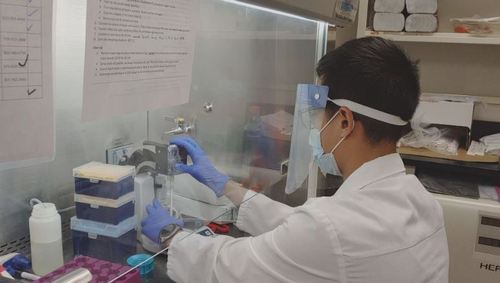Nearly 65% of Colorado’s population is being tested for COVID-19 — and many don’t even realize they’re submitting samples. Scientists have learned COVID-19 is shed in human waste days before a person even becomes symptomatic, often within just 24 hours of contracting the virus.
Every time you flush a toilet in Colorado, odds are you are helping scientists forecast the next potential outbreak of coronavirus. Scientists at Colorado State University have teamed up with CDPHE and MSU researchers to track the spread of coronavirus through testing feces in the sewage system.
That means researchers can easily predict an outbreak in COVID-19 in some communities before the citizens themselves even realize they have the virus.
Doctors Carol Wilusz and Susan De Long are researchers at Colorado State University in Fort Collins. For weeks now they have been accepting sewage samples from dozens of municipalities along the I-25 corridor from Pueblo to Fort Collins. Those samples have then been tested for the virus.
“Feces wouldn’t be my first choice of samples to take. But, the good thing about it is there is lots of it,” Wilusz told CBS4’s Dillon Thomas. “It’s actually a very useful way of monitoring an entire population.”
Those involved with the research say the samples are taken from the sewage system before it reaches the sanitation system plant. A mechanical device takes a small sample of sewage water in regular intervals and compiles it in to one container which is then sent to be evaluated at CSU in Fort Collins.

The sewage water is delivered to CSU for testing within a day of being retrieved from the system.
“Cities near Fort Collins are bringing stuff directly to the labs,” Wilusz said. “Other places, like Pueblo and Colorado Springs, have been shipping it.
De Long said testing feces and sewage water for coronavirus is not only efficient for getting ahead of an outbreak, it’s cost effective.
“This method allows us to test tens of thousands in a single sample. It is incredibly cost effective,” De Long said.

CSU charges upwards of $250 per test, and conducts multiple tests for each municipality per week. While that may seem expensive, sometimes a $250 test can survey the health of more than 10,000 people. Some individuals pay more than $80 just to test themselves through a nasal swab, which doesn’t return results until nearly a week or more after they contracted the virus.
“We know that within a couple days of infection individuals will begin to shed the virus in their stool before they have any symptoms, and even who never become symptomatic will shed the virus,” De Long said.
Colorado is not the first state to conduct such research with waste water. Arizona and Utah are both ahead of Colorado in the process. Researchers at CSU say they will compile data for several months in each city in order to get an idea of what is considered normal levels. Then they will be able to monitor spikes in COVID-19 levels in the future.
Then, when a spike it detected, notification of an outbreak can be sent to a municipality before most of the infected individuals have even started showing symptoms and spreading it among others.
“I should be able to turn around the tests within 24 hours of receiving the samples,” Wilusz said. “When you do get tested you don’t find out you have the disease until five days down the road.”
While many may not have previously thought of how valuable human waste can be, researchers say Coloradans are flushing away very useful information. While the teams of researchers cannot track back traces of COVID-19 directly to an individual who flushed it, they do hope to narrow their research as time moves on.
Eventually, some hope to be able to install testing systems closer to properties like senior care facilities and more. By putting the testing system in a manhole at the base of a sewage deposit from a specific property, they can then tell those individual communities they need to be cautious of specific spikes.
While testing sewage may seem disgusting for many, those on the forefront of the battle with COVID-19 say human waste is actually a key factor to preserving human life.
“Our efforts will help provide the data needed to protect people’s health and save lives,” De Long said.



